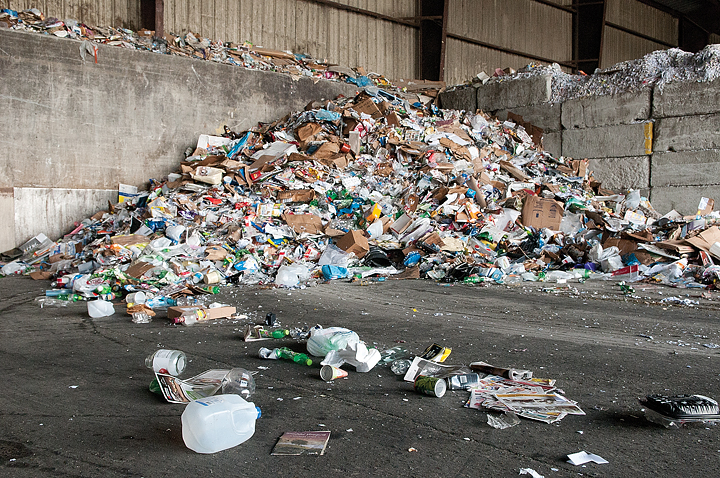The site of the shuttered WASTEC incinerator will soon become a recycling facility, taking in the junk residents and businesses in Wilmington and New Hanover County throw away. The county has signed an agreement with Sonoco, a packaging company, to process and find markets for recyclable waste.
The effort is expected to jointly save the local governments $650,000, a year of recycling costs, county environmental management director Joe Suleyman said. The move also comes with an expense: The county must spend about $800,000 to renovate the shuttered WASTEC plant for Sonoco.
The county will charge the city $10 per ton to process the recyclables, compared with the $40 per ton the city’s vendor was asking, Suleyman said.
Residents and businesses generated 238,000 tons of garbage last year. A good bit can be reused. A family of four that recycles in New Hanover County generates about 45 pounds every two weeks — trash that otherwise would go to the landfill, Suleyman said.
That family could potentially recycle more than one-half ton of waste per year, he said. And residents are recycling more than ever, partly because of larger bins that allow people to toss all of their recyclables into one large bin without separating the materials.
Jim Foster, Sonoco regional manager, said the company recycles materials to manufacture packages it displays on store shelves. What it can’t use, it finds other markets for.
The company already operates a processing site in Jacksonville, and at least one hauler that serves New Hanover County takes its recyclables there.
That also means more “contamination” from stuff that doesn’t belong there, Suleyman said.
A recent Washington Post story noted this has been one of the problems with recycling. Bins make it easy to recycle, but some people — often with good intentions — toss in items that should go into the garbage, Suleyman said. Recent examples include cutoff shorts and action figures.
Foster said his company has seen contamination increase from less than 5 percent to more than 10 percent in the past five years.
“People are trying to do the right thing,” he said, but what can’t be used must be sorted and taken to the landfill, adding to cost and time.
But the bigger issue with recycling — and one that cities and counties are grappling with, as well as private companies, is current markets cannot support the volume of recyclables sent to the end users, said Ven Poole, chief executive officer for Waste Industries.
“The issue we have is not a supply problem,” Poole said. “It’s a demand problem. The problem is there aren’t any end users. … It is the economics of supply and demand.”
China has been a big buyer of American recyclables, but demand there has peaked, he said, and the excess demand has depressed prices and makes it harder to find a buyer.
What that means for local governments is they can no longer count on making money from recycling, and often they must pay a large fee. In New Hanover County’s case, the benefit is not so much making money as it is extending the life of the landfill.
Is it worth the cost? For urbanized areas such as New Hanover County, probably, Poole said. Small, rural communities may have more difficulty justifying the effort, however, he said. Also, communities that use municipal waste to generate energy (as New Hanover County once did) would benefit from having more waste, not less, he said.
“It is certainly a good thing for us to do,” he said. “Whether it is the proper thing for every community is a question of economics.”
The key to continuing to recycle more of our waste must involve manufacturers and consumers. They must be willing to buy recycled products, thus increasing demand, Poole said.
email [email protected]




